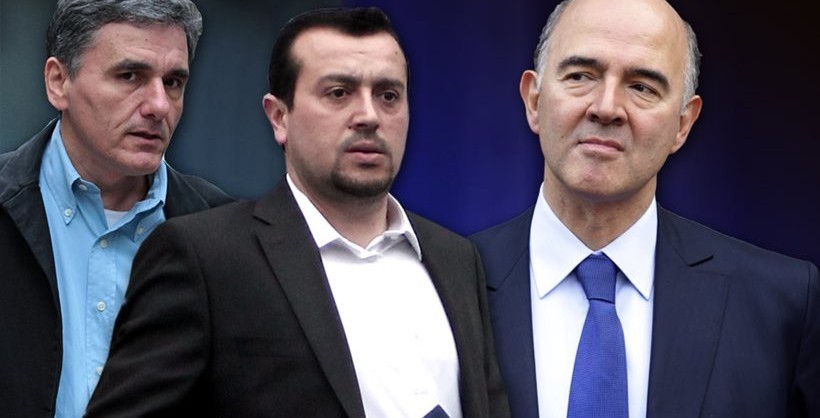The Greek Radical Left Coalition (SYRIZA) government is working towards convergence with its international creditors from the European Commission (EC), European Central Bank (ECB) and International Monetary Fund (IMF). So far, Greece’s lenders have yet to open their canisters and offer Greece the 7.2 bln euros benchmarked for the country since last year.
The Greek side requested a meeting that took place between European Commissioner Pierre Moscovici, Greece’s Alternate Minister for International Economic Relations, Euclid Tsakalotos, and Greek State Minister Nikos Pappas in Brussels on Monday. Following the meeting, Annika Breidthardt -Moscovici’s spokeswoman – said that “at this stage in the negotiations, all exchanges of information are useful” but she made it clear that an agreement could not be reached without the consent of all three institutions involved. “These are the rules of the game, as agreed between Greece and the other euro zone countries on February 20,” she said.
Seven key areas of negotiation remain before an agreement is reached:
1. Proto Thema first revealed the scoop that the government is about to propose the full abolition of special VAT rates (30% reduction) on Mykonos, Santorini and other Aegean islands. This measure is one that Moscovici supported when he met with Pappas and Tsakalotos.
2. The Greek delegation wants its international creditors to recognize that the state will yield 1 bln euros in revenue from the debt settlement in 100 installments until the end of the year, bearing in mind that 500 mln euros have already been gathered.
3. The battle for pension reforms continues and the first cracks have appeared on the matter of EKAS (Pensioners Social Solidarity Fund) though no conclusive decisions have been made.
4. The IMF wants the OECD’s measures to apply concerning the opening of closed professions and reforms concerning medicines, milk and super markets.
5. The battle of the primary surplus is ongoing. Athens wants the primary surplus goal to be at 0.6% of the GDP for this year and 1% next year whereas creditors are putting this goal at 1% and 2%.
6. The Greek side wants to convince its creditors to ‘bundle’ Greece’s debt from the IMF, ECB and ESM.
7. The Greek side wants an extension to the program. It is estimated that there will be a deal in this regard.





































